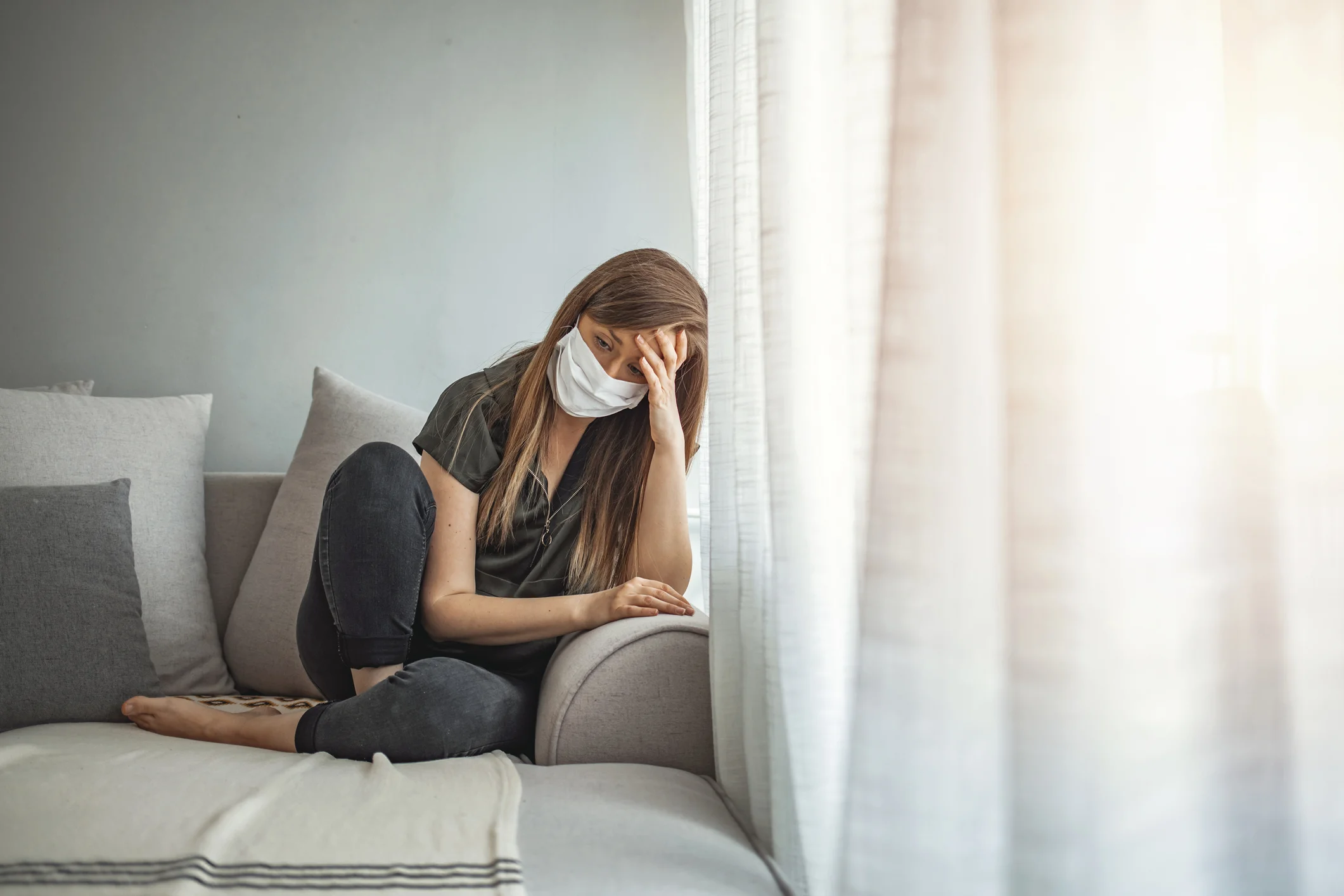Mental health and physical health are deeply intertwined, influencing one another in profound ways. While physical ailments can affect mental well-being, the reverse is equally true: poor mental health can significantly impact physical health. This article explores the complex relationship between mental and physical health, highlighting how conditions such as anxiety, depression, and stress can manifest in physical symptoms and lead to chronic health issues.
The Mind-Body Connection
The mind-body connection refers to the link between mental and emotional processes and physical health. This connection is supported by research in fields like psychology, medicine, and neuroscience, revealing that mental health conditions can lead to biological changes in the body. These changes can affect various systems, including the immune, cardiovascular, and endocrine systems.
Stress and the Body
One of the most direct ways poor mental health impacts physical well-being is through stress. Chronic stress can trigger the body’s fight-or-flight response, releasing hormones such as cortisol and adrenaline. While these hormones can be beneficial in short bursts, prolonged exposure can lead to a host of physical problems:
- Immune System Suppression: High cortisol levels can suppress the immune system, making the body more susceptible to infections and diseases. Individuals with chronic stress may find themselves frequently ill or experiencing longer recovery times.
- Cardiovascular Issues: Stress can lead to elevated blood pressure and heart rate, increasing the risk of heart disease, stroke, and other cardiovascular conditions. Research has shown a clear link between chronic stress and heart health, emphasizing the importance of managing stress for overall physical well-being.
- Digestive Problems: Stress can exacerbate gastrointestinal issues such as irritable bowel syndrome (IBS), acid reflux, and ulcers. The gut is particularly sensitive to stress, and many individuals experience stomachaches or changes in appetite during stressful times.
- Musculoskeletal Pain: Tension in the muscles can lead to headaches, neck pain, and other musculoskeletal issues. Chronic stress can result in tension headaches and migraines, contributing to a cycle of pain and mental distress.
Anxiety and Its Physical Effects
Anxiety disorders, which affect millions worldwide, can have severe physical manifestations. Symptoms of anxiety often overlap with physical health issues, making it challenging to distinguish between the two:
- Physical Symptoms: Anxiety can lead to various physical symptoms, including rapid heartbeat, shortness of breath, sweating, and dizziness. These symptoms can mimic other health conditions, causing further anxiety and stress.
- Chronic Pain: Research indicates that individuals with anxiety disorders are more likely to experience chronic pain conditions, such as fibromyalgia and chronic fatigue syndrome. The relationship between anxiety and pain is complex, as anxiety can heighten pain perception.
- Sleep Disturbances: Anxiety often disrupts sleep, leading to insomnia or poor sleep quality. Sleep is essential for physical health, and chronic sleep deprivation can lead to issues like obesity, diabetes, and cardiovascular disease.
Depression and Physical Health
Depression is another mental health condition with significant physical health implications. It can alter the way individuals engage with their health and wellness:
- Energy Levels: Depression often leads to fatigue and low energy levels, making it difficult to engage in physical activities. This sedentary lifestyle can contribute to weight gain, obesity, and related health issues, such as type 2 diabetes and heart disease.
- Appetite Changes: Depression can cause significant changes in appetite, leading to overeating or undereating. Both extremes can have serious health consequences. Poor mental health affect physical health.
- Inflammation: Research has shown that depression is associated with increased inflammation in the body. Chronic inflammation is linked to various diseases, including heart disease, diabetes, and autoimmune disorders.
The Role of Lifestyle
Poor mental health can also impact lifestyle choices, further complicating the relationship between mental and physical well-being:
- Substance Abuse: Individuals struggling with mental health issues may turn to alcohol, drugs, or unhealthy behaviors as a coping mechanism. Substance abuse can lead to a host of physical health problems, including liver disease, respiratory issues, and increased risk of infections.
- Neglect of Health: Those experiencing poor mental health may neglect routine health care, leading to untreated conditions and worsening health. Regular check-ups, screenings, and preventive care are vital for maintaining physical health.
- Social Isolation: Mental health issues can lead to social withdrawal and isolation, limiting support systems and exacerbating both mental and physical health issues. Lack of social interaction can negatively affect health outcomes, as social connections are essential for emotional and physical well-being.
The Impact of Chronic Illness
Conversely, chronic physical illnesses can also affect mental health, creating a vicious cycle. Living with conditions such as diabetes, heart disease, or chronic pain can lead to feelings of helplessness, anxiety, and depression. This interplay emphasizes the importance of addressing both mental and physical health in a comprehensive manner.
Strategies for Improvement
Improving mental health can have a significant positive impact on physical well-being. Here are several strategies that can help break the cycle of poor mental health and its physical repercussions:
- Therapeutic Interventions: Seeking professional help through therapy, counseling, or medication can effectively address mental health issues. Cognitive-behavioral therapy (CBT) and mindfulness-based approaches are particularly beneficial.
- Regular Physical Activity: Exercise is a powerful tool for improving both mental and physical health. Physical activity releases endorphins, reduces stress, and can improve mood. Even moderate exercise, such as walking, can have significant benefits.
- Balanced Nutrition: A well-balanced diet can positively affect both mental and physical health. Foods rich in omega-3 fatty acids, antioxidants, and vitamins can support brain function and overall health.
- Mindfulness and Stress Management: Incorporating mindfulness practices, such as meditation, yoga, or deep-breathing exercises, can help manage stress and improve mental health. These practices can also reduce physical symptoms associated with stress.
- Social Support: Building and maintaining a strong social network can provide emotional support and combat feelings of isolation. Engaging with friends and family or participating in community activities can improve both mental and physical well-being.
- Routine Health Check-ups: Regular visits to healthcare providers can help monitor physical health and catch potential issues early. This proactive approach is essential for individuals with mental health concerns.
Summary
The relationship between mental health and physical well-being is complex and multifaceted. Poor mental health can lead to various physical health issues, exacerbating existing conditions and contributing to a cycle of decline. Conversely, addressing mental health can significantly improve physical health outcomes. By recognizing the interconnectedness of these two aspects of health, individuals can take proactive steps to enhance their overall well-being, leading to a healthier, happier life. Prioritizing both mental and physical health is not only beneficial but essential for achieving holistic wellness.
Recron Certified Dream Fibre Pillow (41X61, Fiber;Microfiber, White, Pack Of 2)
₹399.00 (as of 23 December, 2024 11:23 GMT +05:30 - More infoProduct prices and availability are accurate as of the date/time indicated and are subject to change. Any price and availability information displayed on [relevant Amazon Site(s), as applicable] at the time of purchase will apply to the purchase of this product.)Crompton Galaxy Decoration Copper USB Powered String Fairy Lights with 100 Led Light (10 Meters / 32 Feet, Warm White, Pack of 1)
₹139.00 (as of 23 December, 2024 11:23 GMT +05:30 - More infoProduct prices and availability are accurate as of the date/time indicated and are subject to change. Any price and availability information displayed on [relevant Amazon Site(s), as applicable] at the time of purchase will apply to the purchase of this product.)The Purple Tree Christmas Reindeer LED Curtain Lights -2.5 M (Pack of 1) Warm White, Lights for Christmas, Christmas Lights, Led Curtain Light, Festive Light,
₹549.00 (as of 23 December, 2024 11:23 GMT +05:30 - More infoProduct prices and availability are accurate as of the date/time indicated and are subject to change. Any price and availability information displayed on [relevant Amazon Site(s), as applicable] at the time of purchase will apply to the purchase of this product.)BESTHOT Immersion Water |1500 Watt Electric Immersion Rod, Instant Heating With Bucket Holde Long Wire Hot Water Color (Black)
₹289.00 (as of 23 December, 2024 11:24 GMT +05:30 - More infoProduct prices and availability are accurate as of the date/time indicated and are subject to change. Any price and availability information displayed on [relevant Amazon Site(s), as applicable] at the time of purchase will apply to the purchase of this product.)Misamo Enterprise PVC Wall Hooks, Pack of 15, Transparent
₹189.00 (as of 23 December, 2024 11:23 GMT +05:30 - More infoProduct prices and availability are accurate as of the date/time indicated and are subject to change. Any price and availability information displayed on [relevant Amazon Site(s), as applicable] at the time of purchase will apply to the purchase of this product.)Discover more from The General Post
Subscribe to get the latest posts sent to your email.





